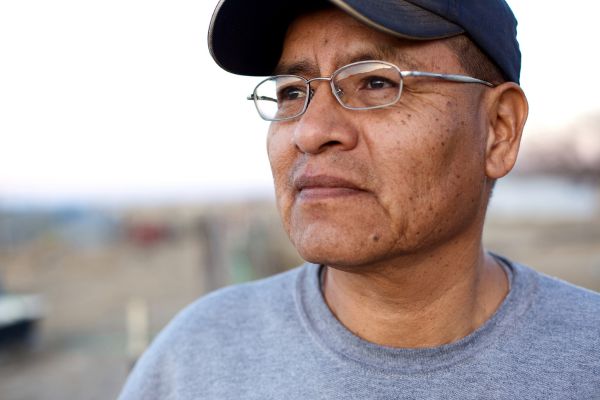
- Details
- By Kaili Berg
When prostate cancer is detected early, the odds of survival are high. This is the message that is being spread in September, which is Prostate Cancer Awareness Month.
According to the American Cancer Society, in 2023, there will be an estimated “288,000 men diagnosed with the disease, with close to 35,000 deaths.” Prostate cancer is the second most common cancer related death in American Indian/Alaska Native (AI/AN) men.
AI/AN men are less likely to receive prostate cancer screening than other racial groups, according to a study from the Wake Forest University School of Medicine.
But why are AI/AN men at a higher risk? When talking about health issues in the Native American community, it’s important to note and acknowledge the historic trauma Indigenous communities face that has resulted in AI/AN people experiencing poorer health and socioeconomic outcomes.
The American Cancer Society recommends that men at the average risk for prostate cancer discuss the benefits and limitations of screening with their healthcare provider at the age of 50. The power of early detection cannot be overstated, as it can substantially enhance the chances of successful treatment.
There are two tests that providers can use that help diagnose prostate cancer, including a digital rectal exam (DRE) and blood tests that measure the amount of prostate-specific antigen (PSA). Elevated levels of PSA in the bloodstream can be indicative of prostate cancer.
Prostate cancer may cause no signs or symptoms in its early stages. More advanced prostate cancer may cause signs and symptoms such as:
- Trouble urinating
- Decreased force in the stream of urine
- Blood in the urine
- Blood in the stream
- Bone pain
- Losing weight without trying
- Erectile dysfunction
To address the burden of prostate cancer for all men and the racial disparities that exist, the American Cancer Society established the IMPACT initiative. The initiative addresses urgent unmet needs with the goals of significantly improving outcomes for all men by accelerating engagement and awareness of known prevention strategies into at-risk communities.
If you are 55-69 years old, you should talk to your healthcare provider or call your local Indian Health Service Clinic
More Stories Like This
USDA Expands Aid for Lost Farming Revenue Due to 2025 PoliciesTwo Feathers Native American Family Services Wins 2026 Irvine Leadership Award
Bill Would Give Federal Marshals Authority to Help Tribes Find Missing Children
Indian Health Service to Phase Out Mercury-Containing Dental Amalgam by 2027
End of Enhanced Obamacare Subsidies Puts Tribal Health Lifeline at Risk


